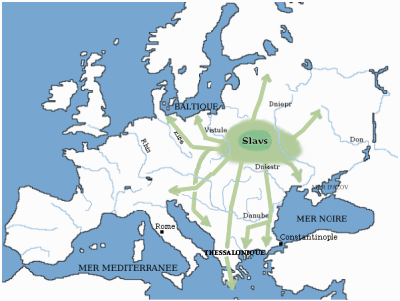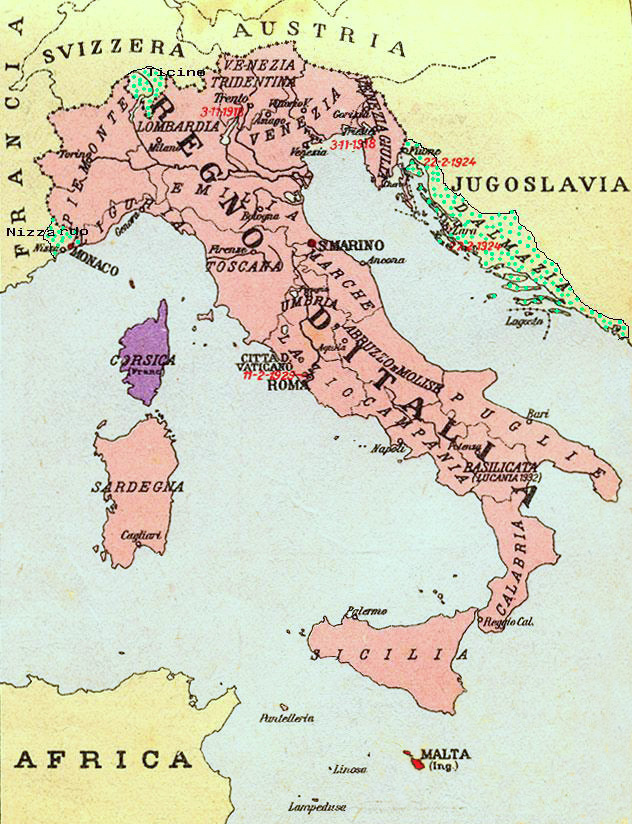|
Powder Keg Of Europe
The powder keg of Europe or Balkan powder keg was the Balkans in the early part of the 20th century preceding World War I. There were many overlapping claims to territories and spheres of influence between the major European powers such as the Russian Empire, the Austro-Hungarian Empire, the German Empire and, to a lesser degree, the Ottoman Empire, the United Kingdom and the Kingdom of Italy. In addition to the imperialistic ambitions and interests in this region, there was a growth in nationalism with the indigenous peoples of this region leading to the formation of the independent states of Greece, Serbia, Montenegro, Bulgaria, Romania and Albania. These tensions had boiled over during the decades long diplomatic crisis in the Balkans: starting with the Macedonian Struggle, the Balkan Wars, and then the 1914 Greco-Turkish war scare, though the Great Powers ruled out military intervention with the region until the assassination of Franz Ferdinand. Background Irredent ... [...More Info...] [...Related Items...] OR: [Wikipedia] [Google] [Baidu] |
Balkan Wars
The Balkan Wars were two conflicts that took place in the Balkans, Balkan states in 1912 and 1913. In the First Balkan War, the four Balkan states of Kingdom of Greece (Glücksburg), Greece, Kingdom of Serbia, Serbia, Kingdom of Montenegro, Montenegro and Kingdom of Bulgaria, Bulgaria declared war upon the Ottoman Empire and defeated it, in the process stripping the Ottomans of their European provinces, leaving only East Thrace, Eastern Thrace under Ottoman control. In the Second Balkan War, Bulgaria fought against the other four combatants of the first war. It also faced an attack from Kingdom of Romania, Romania from the north. The Ottoman Empire lost the bulk of its territory in Europe. Although not involved as a combatant, Austria-Hungary became relatively weaker as a much enlarged Serbia pushed for union of the South Slavs, Slavic peoples. The war set the stage for the July Crisis, July crisis of 1914 and as a prelude to the First World War. By the early 20th century, Bul ... [...More Info...] [...Related Items...] OR: [Wikipedia] [Google] [Baidu] |
Europe
Europe is a continent located entirely in the Northern Hemisphere and mostly in the Eastern Hemisphere. It is bordered by the Arctic Ocean to the north, the Atlantic Ocean to the west, the Mediterranean Sea to the south, and Asia to the east. Europe shares the landmass of Eurasia with Asia, and of Afro-Eurasia with both Africa and Asia. Europe is commonly considered to be Boundaries between the continents#Asia and Europe, separated from Asia by the Drainage divide, watershed of the Ural Mountains, the Ural (river), Ural River, the Caspian Sea, the Greater Caucasus, the Black Sea, and the waterway of the Bosporus, Bosporus Strait. "Europe" (pp. 68–69); "Asia" (pp. 90–91): "A commonly accepted division between Asia and Europe ... is formed by the Ural Mountains, Ural River, Caspian Sea, Caucasus Mountains, and the Black Sea with its outlets, the Bosporus and Dardanelles." Europe covers approx. , or 2% of Earth#Surface, Earth's surface (6.8% of Earth's land area), making it ... [...More Info...] [...Related Items...] OR: [Wikipedia] [Google] [Baidu] |
Otto Von Bismarck
Otto, Prince of Bismarck, Count of Bismarck-Schönhausen, Duke of Lauenburg (; born ''Otto Eduard Leopold von Bismarck''; 1 April 1815 – 30 July 1898) was a German statesman and diplomat who oversaw the unification of Germany and served as its first Chancellor of Germany, chancellor from 1871 to 1890. Bismarck's ''Realpolitik'' and firm governance resulted in him being popularly known as the Iron Chancellor (). From Junker (Prussia), Junker landowner origins, Otto von Bismarck rose rapidly in Prussia, Prussian politics under King William I, German Emperor, Wilhelm I of Prussia. He served as the Prussian ambassador to Russian Empire, Russia and Second French Empire, France and in both houses of the Landtag of Prussia, Prussian parliament. From 1862 to 1890, he held office as the Minister President of Prussia, minister president and foreign minister of Prussia. Under Bismarck's leadership, Prussia provoked three short, decisive wars against Second Schleswig War, Denmark, Austr ... [...More Info...] [...Related Items...] OR: [Wikipedia] [Google] [Baidu] |
Confederation
A confederation (also known as a confederacy or league) is a political union of sovereign states united for purposes of common action. Usually created by a treaty, confederations of states tend to be established for dealing with critical issues, such as defence, foreign relations, internal trade or currency, with the central government being required to provide support for all its members. Confederalism represents a main form of intergovernmentalism, defined as any form of interaction around states that takes place on the basis of sovereign independence or government. The nature of the relationship among the member states constituting a confederation varies considerably. Likewise, the relationship between the member states and the general government and their distribution of powers varies. Some looser confederations are similar to intergovernmental organization, international organisations. Other confederations with stricter rules may resemble federal systems. These elements o ... [...More Info...] [...Related Items...] OR: [Wikipedia] [Google] [Baidu] |
Balance Of Power In International Relations
The balance of power theory in international relations suggests that states may secure their survival by preventing any one state from gaining enough military power to dominate all others. If one state becomes much stronger, the theory predicts it will take advantage of its weaker neighbors, thereby driving them to unite in a defensive coalition. Some realists maintain that a balance-of-power system is more stable than one with a dominant state, as aggression is unprofitable when there is equilibrium of power between rival coalitions. When threatened, states may seek safety either by ''balancing'', allying with others against the prevailing threat; or '' bandwagoning'', aligning themselves with the threatening power. Other alliance tactics include ''buck passing'' and ''chain-ganging''. Realists have long debated how the polarity of a system impacts the choice of tactics; however, it is generally agreed that in bipolar systems, each great power has no choice but to direct ... [...More Info...] [...Related Items...] OR: [Wikipedia] [Google] [Baidu] |
Napoleonic Wars
{{Infobox military conflict , conflict = Napoleonic Wars , partof = the French Revolutionary and Napoleonic Wars , image = Napoleonic Wars (revision).jpg , caption = Left to right, top to bottom:Battles of Battle of Austerlitz, Austerlitz, Fall of Berlin (1806), Berlin, Battle of Friedland, Friedland, Battle of Aspern-Essling, Aspern-Essling, French occupation of Moscow, Moscow, Battle of Leipzig, Leipzig and Battle of Paris (1814), Paris , date = {{start and end dates, 1803, 5, 18, 1815, 11, 20, df=yes({{Age in years, months, weeks and days, month1=05, day1=18, year1=1803, month2=11, day2=20, year2=1815) , place = Atlantic Ocean, Caucasus, Europe, French Guiana, Mediterranean Sea, North Sea, West Indies, Ottoman Egypt, Egypt, East Indies. , result = Coalition victory , combatant1 = Coalition forces of the Napoleonic Wars, Coalition forces:{{flagcountry, United Kingdom of Great Britain and ... [...More Info...] [...Related Items...] OR: [Wikipedia] [Google] [Baidu] |
Great Power
A great power is a sovereign state that is recognized as having the ability and expertise to exert its influence on a global scale. Great powers characteristically possess military and economic strength, as well as diplomatic and soft power influence, which may cause middle or small powers to consider the great powers' opinions before taking actions of their own. International relations theorists have posited that great power status can be characterized into power capabilities, spatial aspects, and status dimensions. While some nations are widely considered to be great powers, there is considerable debate on the exact criteria of great power status. Historically, the status of great powers has been formally recognized in organizations such as the Congress of Vienna of 1814–1815Danilovic, Vesna. "When the Stakes Are High – Deterrence and Conflict among Major Powers", University of Michigan Press (2002), pp 27, 225–22(PDF chapter downloads) [...More Info...] [...Related Items...] OR: [Wikipedia] [Google] [Baidu] |
Yugoslavia
, common_name = Yugoslavia , life_span = 1918–19921941–1945: World War II in Yugoslavia#Axis invasion and dismemberment of Yugoslavia, Axis occupation , p1 = Kingdom of SerbiaSerbia , flag_p1 = State Flag of Serbia (1882-1918).svg , p2 = Kingdom of MontenegroMontenegro , flag_p2 = Flag of the Kingdom of Montenegro.svg , p3 = State of Slovenes, Croats and Serbs , flag_p3 = Flag of the State of Slovenes, Croats and Serbs.svg , p4 = Austria-Hungary , flag_p4 = Flag of Austria-Hungary (1867-1918).svg , p7 = Free State of FiumeFiume , flag_p7 = Flag of the Free State of Fiume.svg , s1 = Croatia , flag_s1 = Flag of Croatia (1990).svg , s2 = Slovenia , flag_s2 = Flag of Slovenia.svg , s3 ... [...More Info...] [...Related Items...] OR: [Wikipedia] [Google] [Baidu] |
Slavs
The Slavs or Slavic people are groups of people who speak Slavic languages. Slavs are geographically distributed throughout the northern parts of Eurasia; they predominantly inhabit Central Europe, Eastern Europe, Southeastern Europe, and Northern Asia, though there is a large Slavic minority scattered across the Baltic states and Central Asia, and a substantial Slavic diaspora in the Americas, Western Europe, and Northern Europe. Early Slavs lived during the Migration Period and the Early Middle Ages (approximately from the 5th to the 10th century AD), and came to control large parts of Central, Eastern, and Southeast Europe between the sixth and seventh centuries. Beginning in the 7th century, they were gradually Christianized. By the 12th century, they formed the core population of a number of medieval Christian states: East Slavs in the Kievan Rus', South Slavs in the Bulgarian Empire, the Principality of Serbia, the Duchy of Croatia and the Banate of B ... [...More Info...] [...Related Items...] OR: [Wikipedia] [Google] [Baidu] |
Pan-Slavism
Pan-Slavism, a movement that took shape in the mid-19th century, is the political ideology concerned with promoting integrity and unity for the Slavic people. Its main impact occurred in the Balkans, where non-Slavic empires had ruled the South Slavs for centuries. These were mainly the Byzantine Empire, Austria-Hungary, the Ottoman Empire, and Venice. Origins Extensive pan-Slavism began much like Pan-Germanism: both of these movements flourished from the sense of unity and nationalism experienced within ethnic groups after the French Revolution and the consequent Napoleonic Wars against traditional European monarchies. As in other Romantic nationalist movements, Slavic intellectuals and scholars in the developing fields of history, philology, and folklore actively encouraged Slavs' interest in their shared identity and ancestry. Pan-Slavism co-existed with the Southern Slavic drive towards independence. Commonly used symbols of the Pan-Slavic movement were the Pan-Slavic ... [...More Info...] [...Related Items...] OR: [Wikipedia] [Google] [Baidu] |
Irredentism
Irredentism () is one State (polity), state's desire to Annexation, annex the territory of another state. This desire can be motivated by Ethnicity, ethnic reasons because the population of the territory is ethnically similar to or the same as the population of the parent state. Historical reasons may also be responsible, i.e., that the territory previously formed part of the parent state. Difficulties in applying the concept to concrete cases have given rise to academic debates about its precise definition. Disagreements concern whether either or both ethnic and historical reasons have to be present and whether non-state actors can also engage in irredentism. A further dispute is whether attempts to absorb a full neighboring state are also included. There are various types of irredentism. For typical forms of irredentism, the parent state already exists before the territorial conflict with a neighboring state arises. There are also forms of irredentism in which the parent state is ... [...More Info...] [...Related Items...] OR: [Wikipedia] [Google] [Baidu] |








